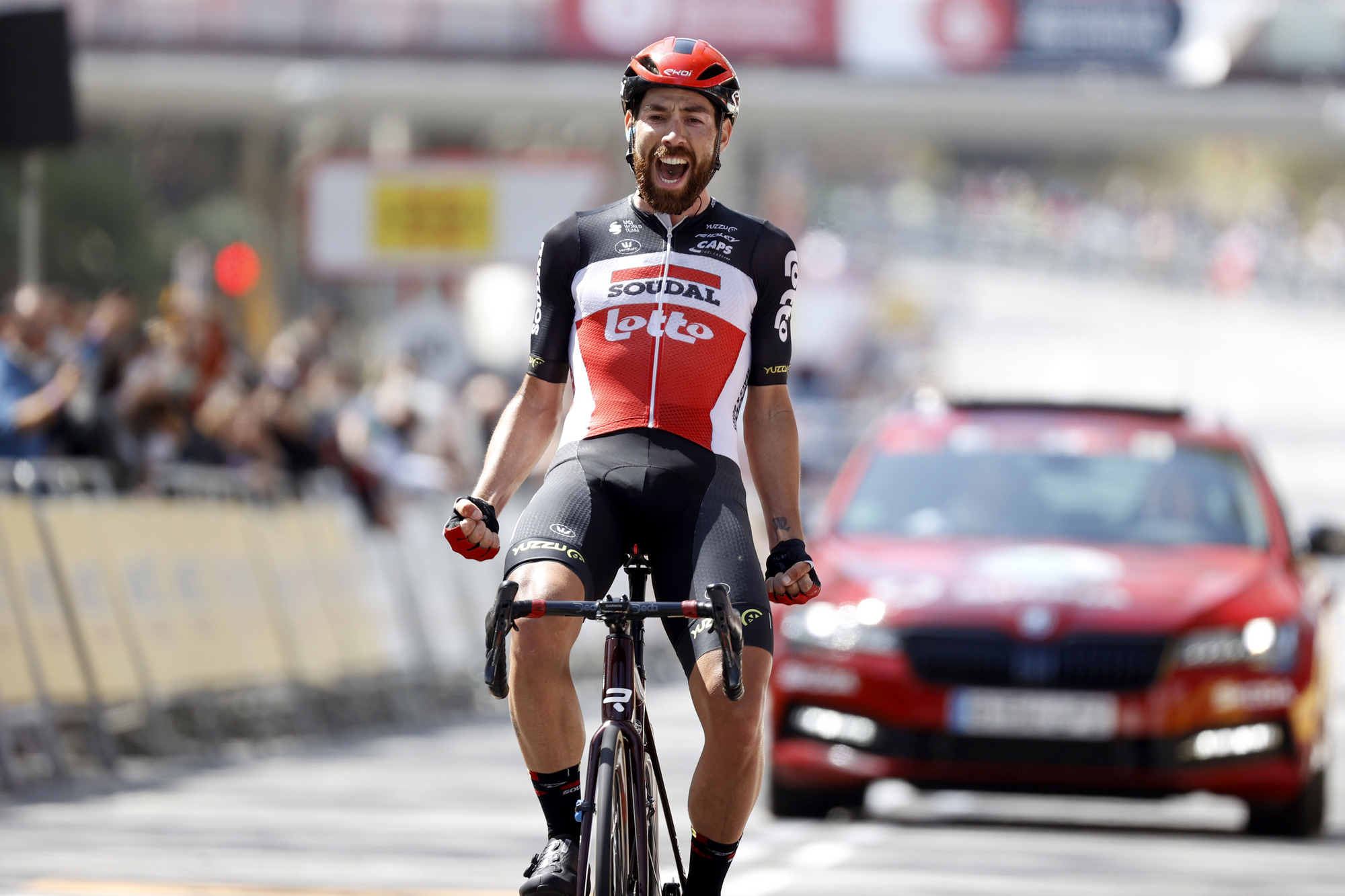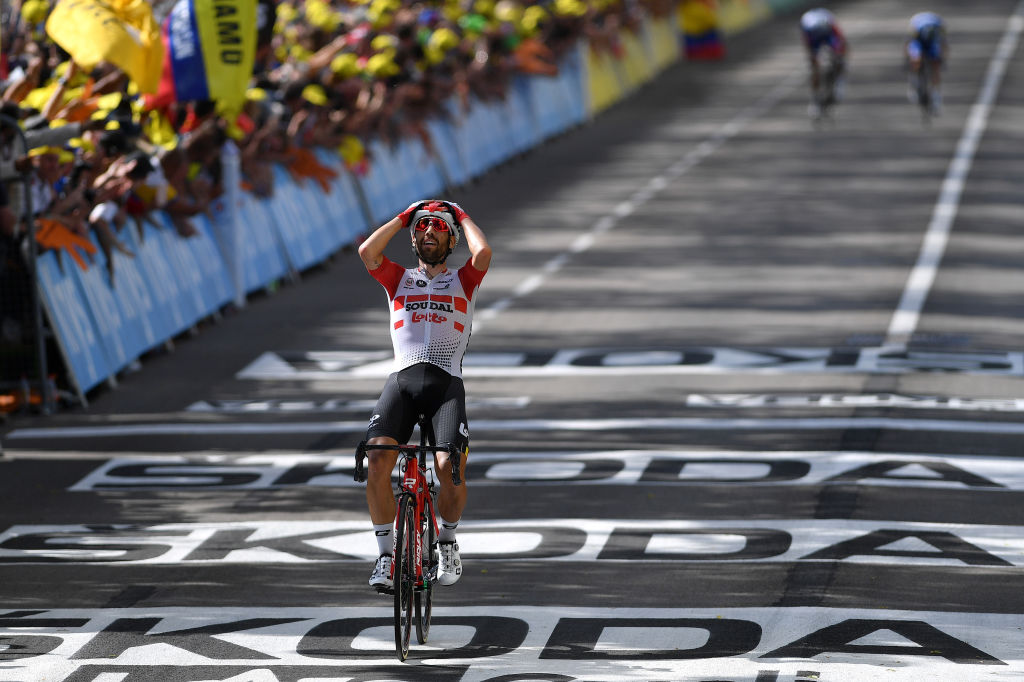Giro d'Italia kicks off 2021 triple Grand Tour challenge for De Gendt
'You never know which day is good for a break in the Giro,' says notable escape artist

The Giro d'Italia being so famous for being unpredictable, it's perhaps not surprising that according to one of cycling's best-known breakaway specialists, Thomas De Gendt (Lotto-Soudal), it's impossible to say which stage could be best for his chances.
"You never know which day is good for a break in the Giro," De Gendt told Cyclingnews shortly after beginning the first of his three Grand Tours of 2021 this weekend.
"It could be a mountain stage, it could be on the flat. For me, my only limitation is when I am working for Caleb Ewan," he said, referring to his Australian teammate and sprinter.
"The other days – you never know. So you just have to go when you have good legs and a good feeling in your head."
The Belgian and Australian Lotto-Soudal riders will divide up the stages as targets as the race unfolds, he says, with Ewan first deciding which ones are good for him, while the rest are De Gendt's – and other Lotto-Soudal riders' – opportunities.
"We just go for the guy who has the most chance to win and today [Sunday] that's Caleb. He has a 99.9 per cent chance of doing something and I've only got 0.1 per cent. A break on a stage like today won't succeed," De Gent reflected before stage 2's flat run to Novara. And he was right.
De Gendt's only stage win dates from the 2012 Giro when he triumphed on the Stelvio and finished a career-best third overall in a Grand Tour behind Canada's Ryder Hesjedal and Joaquim Rodriguez. But when the Belgian raced the Giro in 2019, taking third in one stage and eighth in another as his best results, he had opted to race Tour de Romandie, rather than the Itzulia Basque Country like in 2020. This time he's switched his build-up a little and he hopes it'll be beneficial.
The latest race content, interviews, features, reviews and expert buying guides, direct to your inbox!
"Two years ago I did Romandie and I went really well, but then I felt a bit tired because there are only four or five days between the two. I'd also done the Volta a Catalunya and Paris-Nice before.
"So I want to try and be a little fresher at the start. I just did a hard training camp, but with enough time to rest up before the Giro. Maybe it's a better strategy, maybe it isn't, you'll have to ask me in three weeks' time."
Starting his 20th Grand Tour this weekend, De Gendt says be it the Giro, Tour and Vuelta, there is little difference when it comes to getting into breakaways.
"The Giro stages are usually longer, 230 or 240 kilometres and you have to take that into consideration, although this year that's not the case. Otherwise, with almost identical teams, the same riders and the same goals in each race, nothing really changes there."

While De Gendt studied the start list of the Giro, as usual, before the race began, it's always just so he can get a general idea of who will be on the road. Apparently, it's not overly helpful when it comes to assessing who could be up there to get into breaks.
"For example, Alessandro De Marchi (Israel-Start Up Nation) is a very strong rider for making moves, but here he has Daniel Martin in the team. So maybe he's not allowed to go in breaks, or maybe another guy like him has got to work for a sprinter. There's too many factors for you to know beforehand.
"Basically when you get in a break, if somebody's with you that's because they are allowed to go. There could be even a sprinter with you on a climbing stage. You never know. So the best thing is just to look at yourself and see what you can do."
As for studying the Garibaldi – as the Giro route book is called – before the race to plan out where and when he will go for breakaways, De Gendt said that isn't overly worthwhile. "I look to see what's coming up but I never want to focus on one stage or some stages. You have to follow your legs.
"If you write down, for example, stages 6, 12 and 15 and then you have bad legs on those days and saved yourself on the days before or after, you just wasted a few good stages and maybe a chance to go for the victory."
De Gendt has already taken one stage win this season, in the Volta a Catalunya's last stage at Montjuic, which is encouraging. But as he says, Saturday's prologue in the Giro, being so short, did not give him much insight into his condition.
"At training camp, I did a five-minute test and a ten-minute test and they were just like at a normal level, what I should have in a Grand Tour.
"Yesterday I went full gas in the time trial and only got 94th or something. So that result tells me more about the other riders than about me which is that everybody here is riding at a high level."
Either way De Gendt knows exactly what he is here to do in the Giro.
Alasdair Fotheringham has been reporting on cycling since 1991. He has covered every Tour de France since 1992 bar one, as well as numerous other bike races of all shapes and sizes, ranging from the Olympic Games in 2008 to the now sadly defunct Subida a Urkiola hill climb in Spain. As well as working for Cyclingnews, he has also written for The Independent, The Guardian, ProCycling, The Express and Reuters.
